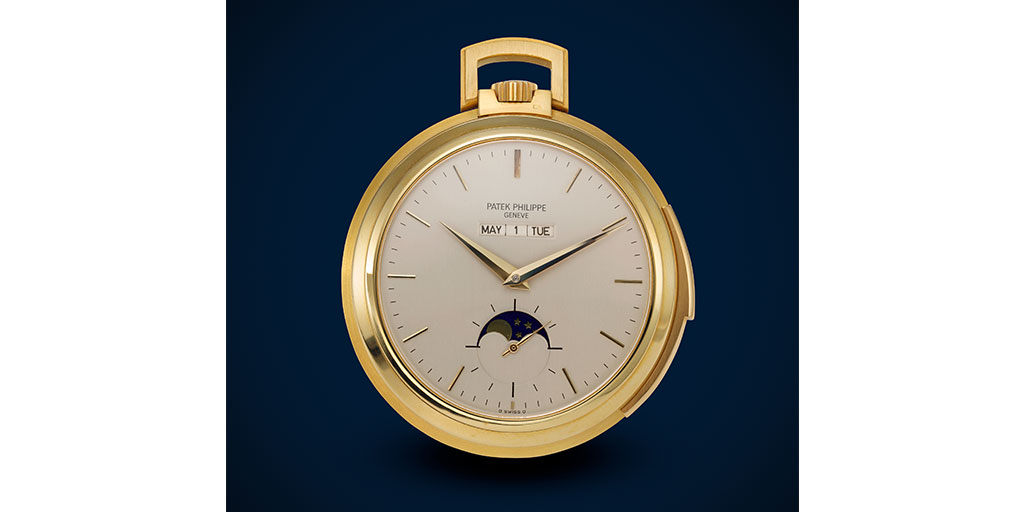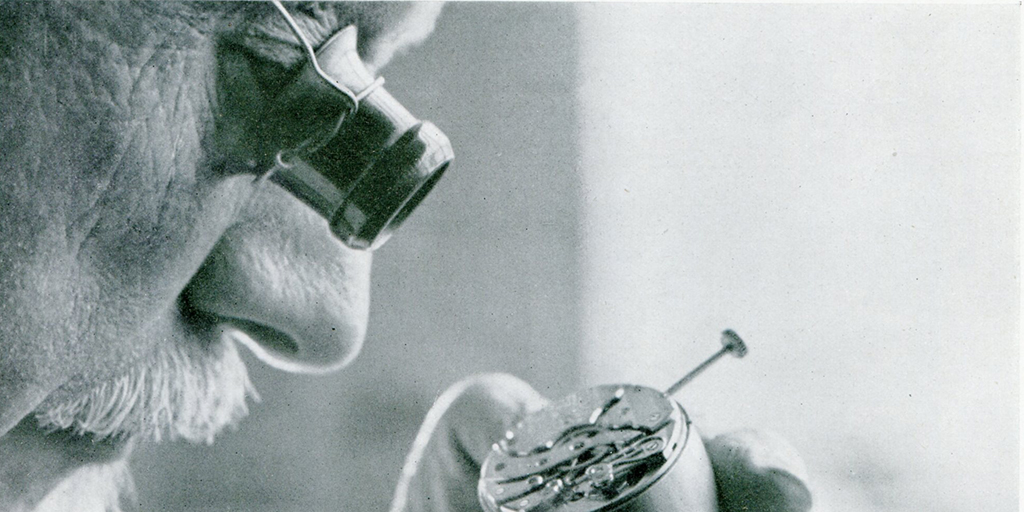Following our in-depth study of the perpetual calendar ref. 725, we’re getting more complicated with the Patek Philippe minute repeater perpetual calendar references 844 and 843.
The ref. 844 is an “American” in-line perpetual calendar, sharing some DNA with the Second Series 725, but adding a minute repeater. The added complication, larger case, and clean dial give the ref. 844 a more modern look. In researching this article, I identified 21 examples of the refs. 844 and 843 that have reappeared on the market since the 1990s.
What is the Patek Philippe Perpetual Calendar Ref. 844 (and Ref. 843)?
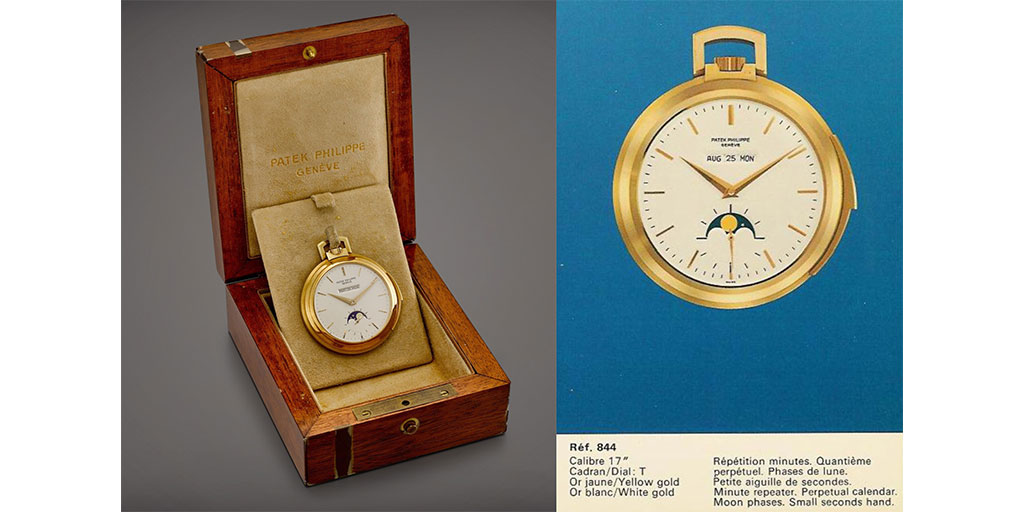
Patek Philippe introduced the ref. 844 in 1965 and produced it in extremely limited numbers. It was still available upon special order in the early 2000s, and only through Geneva, with a price tag near CHF 400,000. With only 21 having reappeared, it’s estimated Patek Philippe produced as few as 60-80 examples.
The case and dial have similar design queues to the ref. 3448 perpetual calendar wristwatch, but with the added minute repeater and heft of a pocket watch, the ref. 844 is entirely its own.
So what’s the difference between refs. 843 and 844?
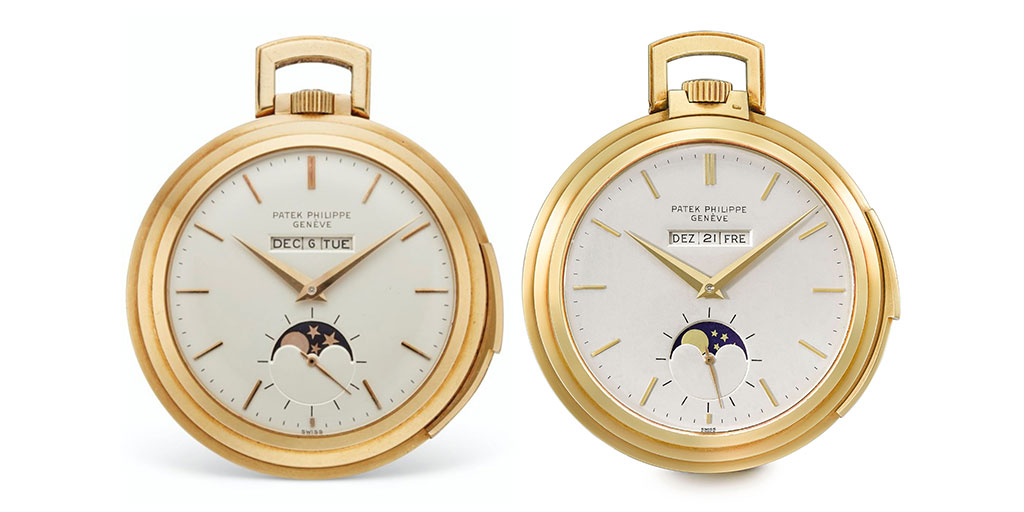
At a glance, the 844 and 843 are the same: Same dial layout, same case, same caliber. There’s some confusion about what differentiates the two references.
I observed just one publicly sold ref. 843 (sold $150,000 in December 2020). Its movement number comes after all documented ref. 844s. As far as I can tell, the ref. 843 is distinguished from the 844 by minor case differences; most notably, the crown guard has a slightly difference shape under the bow.
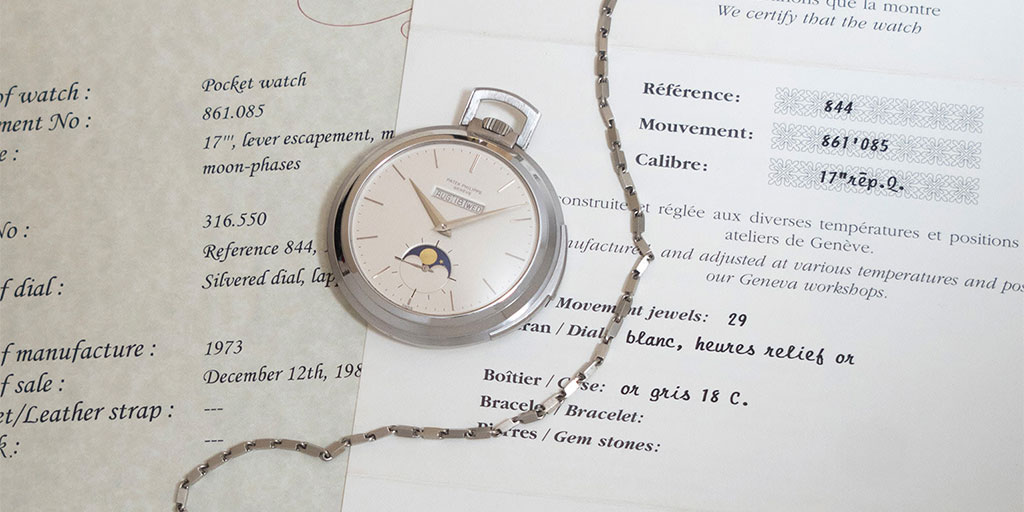
Case. The ref. 844 features a large 51mm gold case with a wide, flat bezel and stepped case made by Antoine Gerlach (key number 4). There are calendar correctors in the mid case, a minute repeater slider sits at 3 o’clock, and there’s a snap-on case back. Most examples are 18K yellow gold. There are two known white 18K gold ref. 844s:
- One example, formerly owned by Jean-Claude Biver, sold in December 2023 ($406,400).
- The other example is signed Beyer and sits in a private Italian collection.
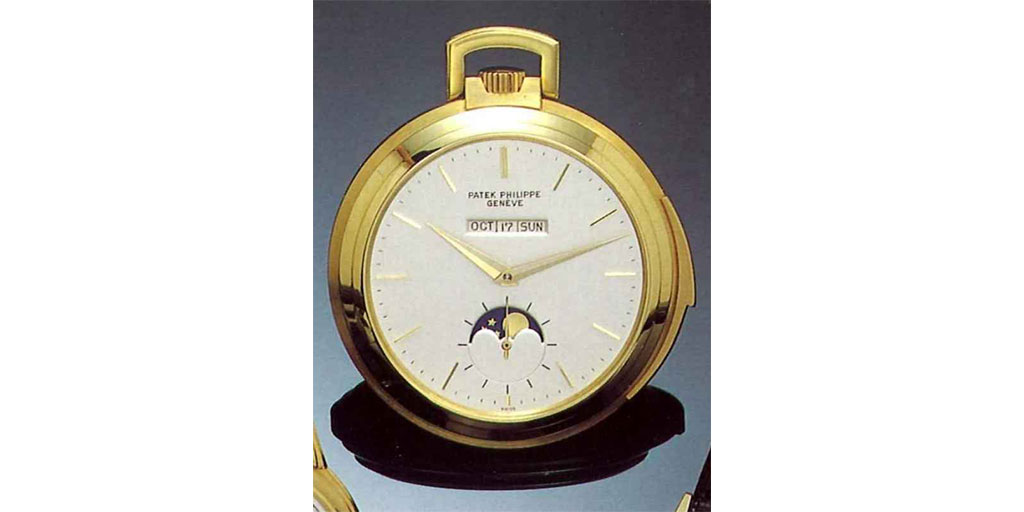
Collector’s mystery: There’s also documentation of a ref. 844 having a super-sized 57mm case. I found one example of this larger size, in yellow gold, last appearing on the market in 1995 (sold for CHF 63,250). Its movement and case number also don’t fit within the other batches of identified examples, so it’s possible this larger, 57mm ref. 844 was a one-off (let’s also hope they measured correctly 30 years ago!). However, archival information suggests the ref. 843 was originally used to indicate the larger, 57mm case. All that is to say: any large ref. 844/843 is an extremely special pocket watch.
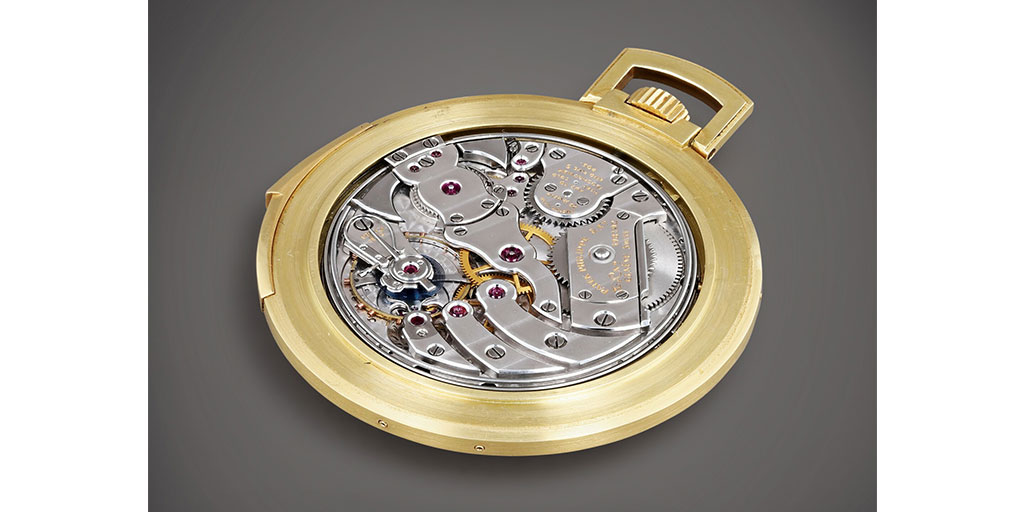
Movement. The ref. 844 uses Patek Philippe caliber 17”’ RMQ, a manual-wind movement with 29 jewels, powering the perpetual calendar, moon phase, and small seconds at 6 o’clock.
Dial. The ref. 844’s opaline silver dial is made by Stern Frères, with an engraved hard enamel signature and outer track, and calendar aperture below 12 o’clock. As with any vintage Patek Philippe dial, it’s important to evaluate the condition of the dial—examine for any enamel that’s been lost or refinished, and note whether the apertures are sharp or how much they’ve been sanded down by cleaning over the years.
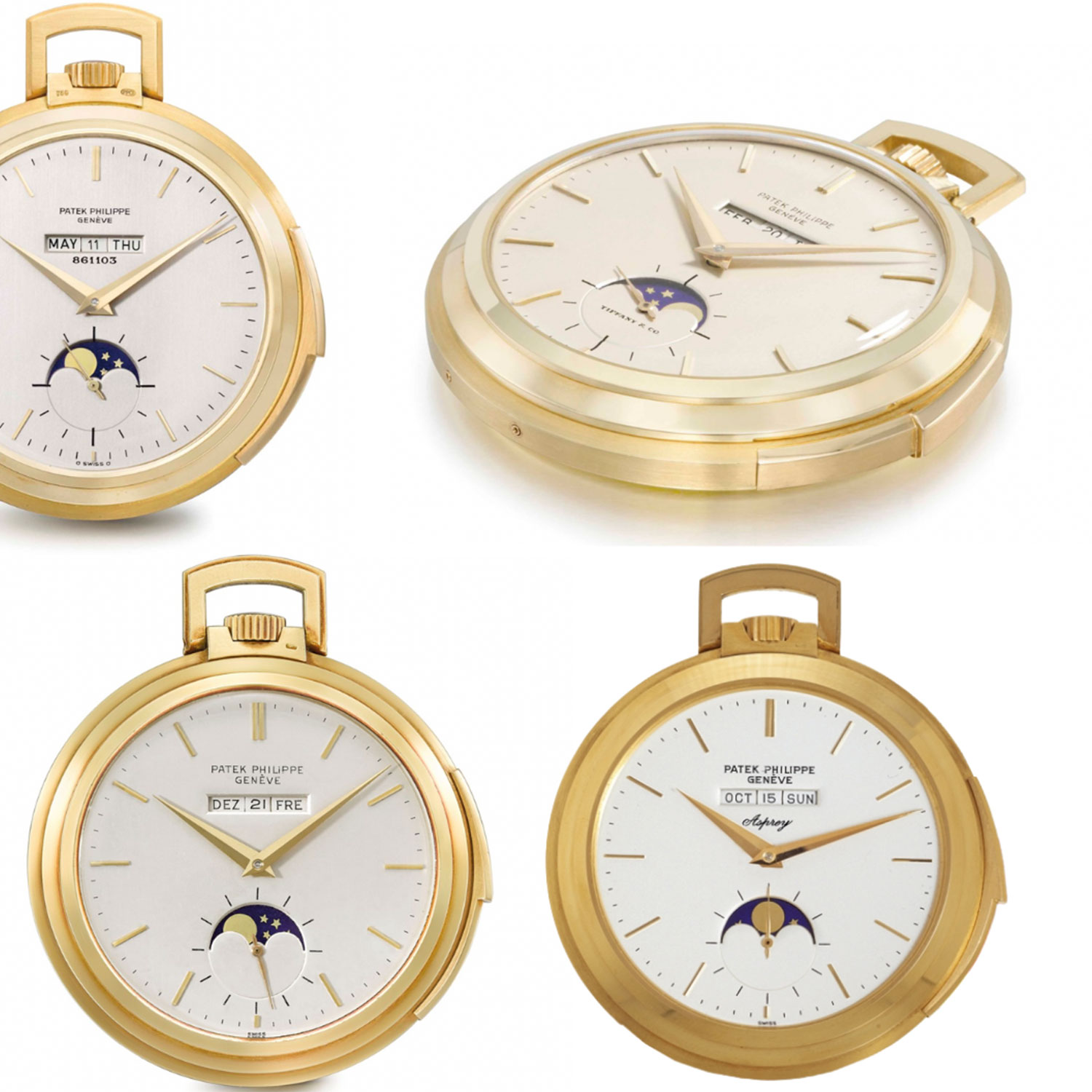
Other variations. There are some notable dial variations: signed by retailers including Tiffany & Co., Asprey London, and Beyer. One example even has its movement number printed on the dial. As its name might hint, the calendar discs are typically seen in English, though we’ve also seen Italian and German calendars (including the Beyer-signed white gold ref. 844).
A Tale of Two Series
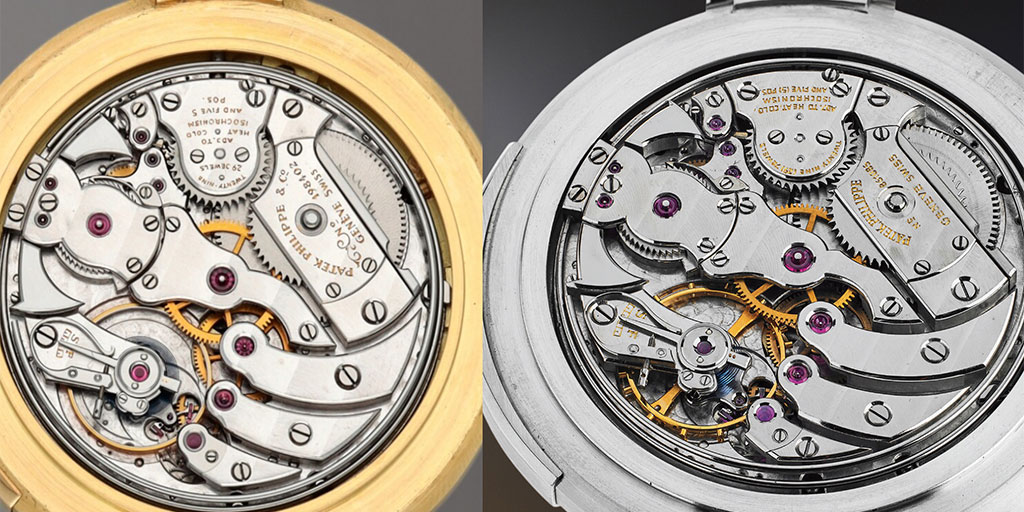
It’s fascinating to track movement numbers of the ref. 844, as it becomes clear there are two production series:
- First series (movement number 19xxx): These movements date to the 1920s-30s, though they were not finished and cased into pocket watches until the 1960s. It’s believed these were movements being produced during the roaring ‘20s, but once the Great Depression hit, much of the production of complications at manufacturers such as Patek Philippe slowed to a halt. In this movement range, you’ll also find other important, complicated Patek Philippe calibers.
- Second series (movement number 861xxx): These movements date from the 1960s through the early 2000s. The ref. 844 was still offered by special order in the 2000s—the last production and sale date I documented is from 2005. This second series of movement numbers all sits within a tight batch.
While these movements were produced decades apart, they share the same features: Wolf’s teeth winding, Geneva stripes, mirror-polished gongs, swan neck regulator, and so on. The first series of production is rarer—only six examples I documented feature movements dating to the 1920s-30s.
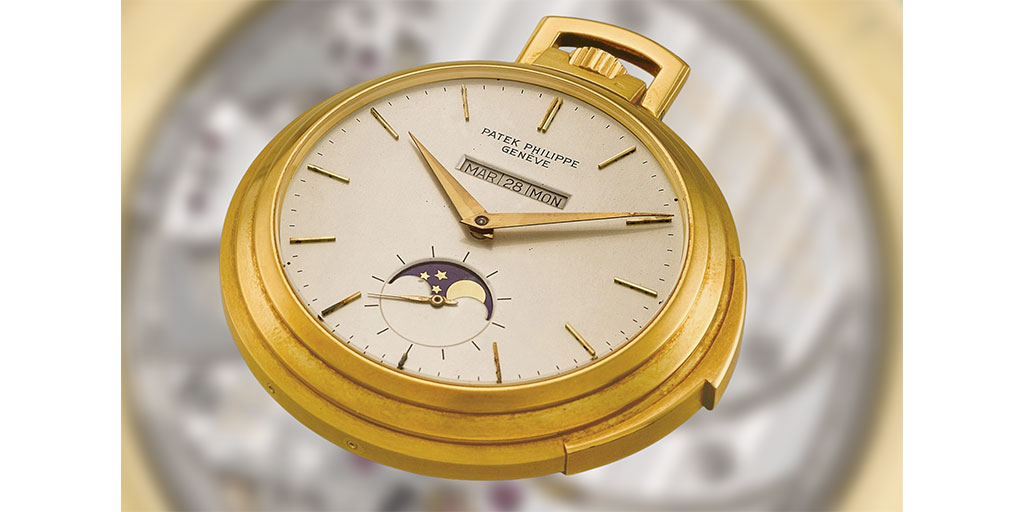
Ref. 844: The Market
Like the ref. 725, prices for the ref. 844 have stayed relatively flat over the past couple of decades and are increasingly being mentioned today in collectors’ circles as one of the best value buys. For example: the white gold example, sold in 2024 for $406,400 (see image below). That’s less than 2016, when it sold for $483,900 last time it appeared on the market. That’s the highest public result for the reference, and more records are expected to be broken in the future.
Conclusions on Collecting the Ref. 844
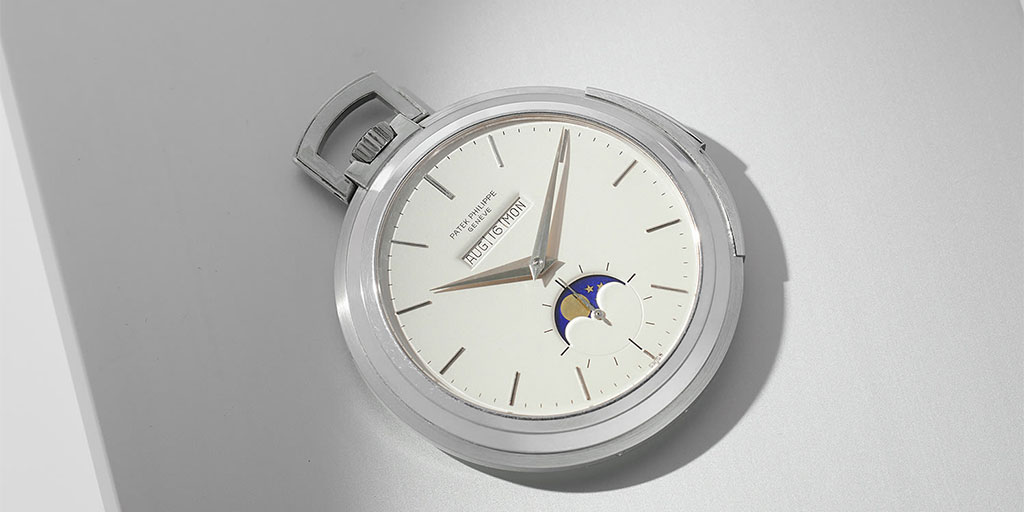
This is Patek Philippe at its complicated best—perpetual calendar, minute repeater, and in an instantly-recognizable case shape—for less than a modern perpetual wristwatch. But this isn’t just a statement of finding value for its own sake; there are plenty of “value buys” on the market at any given time.
The fact is this: while Patek Philippe produced simple and complicated wristwatches that defined the 20th century, its pocket watches are the historical foundation of the brand.
Today, there are no complicated pocket watches in the Patek Philippe catalog. The ref. 844 and 843 may be the last in the manufacturer’s lineage of excellent, complicated pocket watches. When it comes to Patek Philippe pocket watches, this may be as good as it gets.
I get it—pocket watches have fallen out of favor. But good watchmaking never does.
Tony Traina is the editor and founder of Unpolished, the newsletter for watch collectors. He’s a former editor at Hodinkee and also contributes to GQ, Sotheby’s, and Revolution. He’s a collector who started in watches while a practicing attorney.

